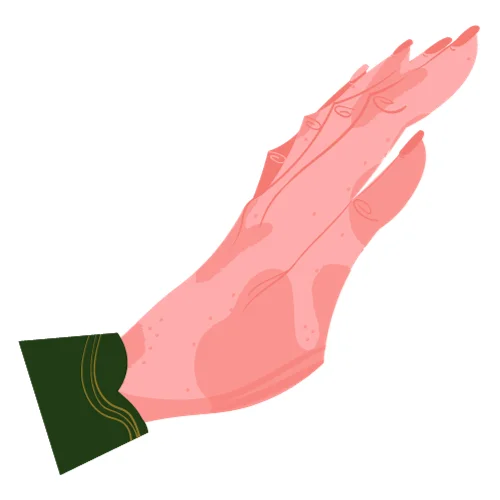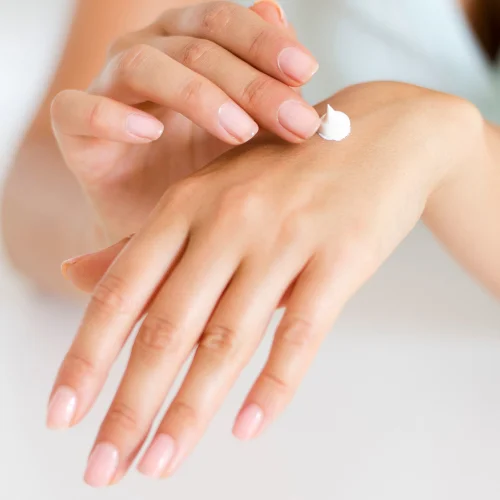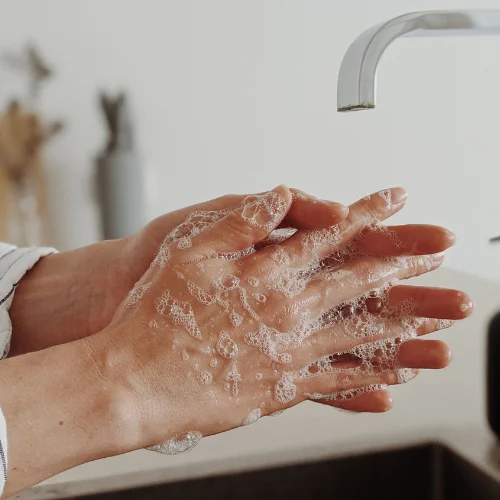Can Frequent Hand Washing Cause Dry Hands?
Hand washing! We’ve heard time and again how important it is for our health. It helps us steer clear of nasty germs and keeps us from getting sick. But, have you ever noticed that your hands feel dry and rough after frequent handwashing? Well, you’re not alone. Many of us have experienced this, and there’s a good reason behind it. In this blog post, I will talk about the connection between frequent hand washing and dry hands, why it happens, and what we can do about it.
Stripping Away Natural Oils
Think of your skin as a protective shield. It has a natural barrier made up of oils that keep it soft and hydrated. However, when we wash our hands frequently, especially with harsh soaps, we strip away these natural oils. It’s a bit like removing the waterproof coating from a raincoat; without it, the raincoat isn’t as effective, and it’s the same with our skin.
Imagine you’re washing dishes after a big family dinner. You’ve got a sink full of greasy pots and pans. To clean them properly, you use a strong dish soap. The more you scrub, the more you notice your hands feeling dry and tight. That’s because dish soap isn’t meant for our skin. It’s designed to cut through grease on dishes, not to nurture our hands.
10 Signs of Dry Hands Due to Over-Washing of Hands
- Flaky, Peeling Skin: Dry hands often show signs of flakiness and peeling.
- Redness and Irritation: Overwashing can cause redness and irritation on the skin.
- Tight, Stretched Feeling: Dry hands often feel tight and stretched.
- Cracked Skin: Excessive hand washing can lead to painful cracks in the skin.
- Itching: Dry hands are prone to itching, making you want to scratch them.
- Rough Texture: Hands may feel rough to the touch due to dryness.
- White, Ashy Appearance: Dry hands may appear white or ashy in color.
- Sensitivity to Products: Dry skin can become more sensitive to lotions or soaps.
- Painful Hangnails: Dryness can result in painful hangnails around the nails.
- Reduced Flexibility: Dry hands may have reduced flexibility and feel stiff.
Skin Conditions like Eczema

Now, let’s talk about something that many people deal with – skin conditions like eczema. If you or someone you know has eczema, you’re probably familiar with the itchy, dry, and sometimes painful patches it can cause on the skin.
Frequent hand washing can make eczema symptoms worse. It’s like throwing fuel on the fire. The more we wash our hands with harsh soaps, the more we irritate our already sensitive skin. If you have eczema, you might notice that your hands flare up after washing them repeatedly.
Imagine having a sunburn. When you touch it or rub it, it gets more irritated and hurts even more. Eczema-prone skin can react similarly when subjected to excessive hand washing.
Prevention and Healing

So, what can we do to prevent and heal dry hands caused by frequent hand washing? Here are some simple tips:
Apply a Hand Cream or Ointment: After washing your hands, don’t forget to moisturize! Keep a tube of hand cream or ointment handy. Applying it right after washing helps lock in moisture. It’s like giving your skin a refreshing drink of water.
Use Vaseline: You might have heard of Vaseline. It’s a thick, petroleum-based jelly that works wonders for dry skin. A little dab of Vaseline can create a protective barrier on your hands, sealing in moisture.
Choose the Right Soap: Not all soaps are created equal. Some are harsher than others, like dish soap or laundry soap, which are not meant for use on the skin. Make sure you are washing your hands with soaps that are meant for skin. Look for gentle, moisturizing soaps that won’t strip away those precious natural oils.
Why Do Some People Wash Hands Compulsively?

You know, washing our hands is super important to keep germs away. But some people take it to the next level and wash their hands a lot more than most of us. There are a few reasons for this.
First off, some people have something called “obsessive-compulsive disorder” or OCD for short. It’s like having a tiny voice in their head that keeps telling them, “Wash your hands again, just to be safe.” It can be tough to ignore that voice, so they wash their hands over and over.
Secondly, there’s something called “germophobia.” It’s when someone is afraid of germs. They wash their hands all the time because they worry about getting sick from touching things. It’s like they’re always on high alert for germs.
Also, stress and anxiety can play a big role. When people are stressed or anxious, they might feel like they need to wash their hands to calm down. It’s like a way for them to cope with their feelings.
Sometimes, people learn this behavior from their parents or friends. If they see someone close to them washing their hands a lot, they might start doing it too, thinking it’s the right thing to do.
But here’s the thing. While washing our hands is important, doing it excessively can cause problems. It can lead to dry and cracked skin, which can be painful. Plus, using too much soap and water isn’t very good for the environment.
If you know someone who washes their hands a lot, it’s essential to be understanding and supportive. Encourage them to talk to a doctor or therapist who can help them manage their feelings and find healthier ways to deal with their worries.
So, in a nutshell, some people wash their hands compulsively due to things like OCD, germophobia, stress, or learned behavior. It’s essential to be kind and patient with them as they work through their concerns and find a balance in their hand-washing habits.
Hand Washing for Health
Let’s not forget the main reason we’re washing our hands so often – to stay healthy. Handwashing is one of the most effective ways to prevent the spread of illnesses like the flu or common cold. It’s like a superhero shield for our health.
Imagine we’re at a big picnic with friends and family. Everyone’s sharing delicious food, and kids are playing games. It’s a fun day, but we can’t see the germs that might be lurking on surfaces or our hands. Now, picture someone with a cold sneezing into their hand and then touching the picnic table. If we touch that same spot and later eat our sandwich without washing our hands, we could catch their cold!
Handwashing helps us avoid situations like this. It’s like a secret weapon against invisible enemies. However, just like superheroes sometimes need a break to recharge, our hands need a little extra care after all that crime-fighting (or in this case, germ-fighting).
Finding the Balance
So, here’s the million-dollar question: How do we find the balance between staying healthy and keeping our hands from turning into sandpaper? It’s all about being mindful and taking steps to protect our skin.
Imagine you’re a gardener. You love spending time outside, tending to your beautiful plants. But, you know that if you don’t wear gloves, your hands can get dirty and rough. So, you wear gloves to protect them. Similarly, we can protect our hands by using the right soap, moisturizing, and being cautious about overdoing it with hand washing.
Conclusion
In the end, the verdict is crystal clear: frequent hand washing can indeed cause dry hands. It’s a trade-off we make for the sake of our health, and it’s one worth making. After all, keeping ourselves and our loved ones safe from illnesses is a top priority.
However, we don’t have to suffer from dry, uncomfortable hands. We have the tools and knowledge to strike a balance. Remember to moisturize your hands after washing them, use products like Vaseline for added protection, and choose gentle, skin-friendly soaps. It’s a bit like tending to a garden; with care and attention, we can keep our hands soft and healthy even in the face of frequent hand washing.
